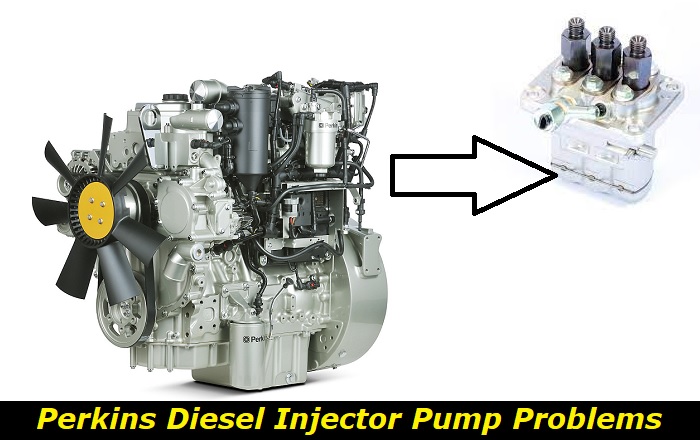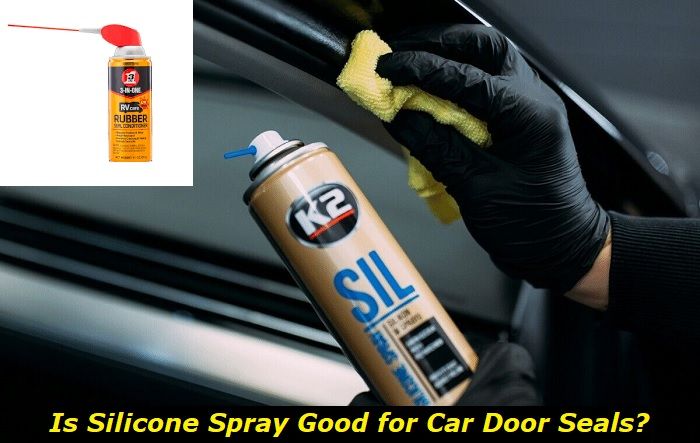Your Perkin Diesel Injector Pump may be damaged due to several reasons. Read on to learn the fundamental troubleshooting procedures to help resolve the issue. Did you know that presence of water in the fuel and the quality of fuel used can contribute to the cause of issues in the diesel injector pump? If you didn't, do not worry, this article will help you understand the symptoms of these problems and their probable causes.
Fuel supply upgrades highlights
- Commonreasons:more power, need for efficient supply, higher pressure
- Average prices:$800 - $2,500
- Average waiting time:2 - 7 days
- Common problems:aftermarket parts problems, issues withbadinstallation
- DIY mods:usually,impossible
- Level of satisfaction:high

Symptoms of a Failing Diesel Fuel Pump
The best way to get ahead of a problem is to recognize its symptoms so that you can arrest it on time. Every Perkins owner should know how the diesel fuel pump system works. It is not simply as easy as the fuel going up from the tank through the metal pipes and ending up in the engine.
In the fuel tank, there is an electric pump that begins working as soon as you crank your engine. The electric pump generates some pressure which pushes the diesel through the metal pipe.
When the diesel reaches the fuel injectors, the engine is given the right amount of fuel at the appropriate time. After understanding how the fuel injection system works, take note of the common symptoms of a car with a faulty diesel fuel pump.
- Strange Sounds
As soon as your Perkins fuel pump fails, you may hear unusual sounds - mostly squeaking from underneath your hoods. Please don't panic, no matter how dreadful it sounds. It is important to note that it is normal for your diesel fuel pump to generate some sounds upon starting the car.
These sounds should subside when the car continues moving. You will likely hear a squeaking sound if your fuel pump is damaged.
- Delayed Acceleration
You may be driving and notice that your engine hesitates to accelerate. This is not a good sign. If you experience a delay every time you put your foot on the gas pedal, chances are high that you may have a faulty diesel injector pump. If not fixed immediately, your injector pump may result in more damage to your engine.
- The Car Fails to Start
If you are unsure whether or not your car will 'cooperate' when you turn the key in the ignition, chances are high that you may suffer from a malfunctioning diesel fuel pump. Damaged fuel pumps are a common reason for failure to start. If your pump cannot inject the right amount of fuel at the right time, you will have trouble starting.
Anytime you try to turn the key or push the start button and notice that it's taking longer than expected, consider having the fuel pump inspected for any faults.
- Engine Misfire
When driving your vehicle and your engine begins to misfire, the sound and the effect in the passenger cabin will be hard to ignore. A misfiring engine may cause other severe damage to your engine. A faulty fuel pump causes your engine to misfire due to insufficient fuel supply for complete combustion.
- Engine Stalling
Has your engine ever stalled on you? Did you inspect the diesel fuel pump? More often than not, engine stalling is caused by a damaged fuel pump. If you suspect that a malfunctioning fuel pump is behind your engine's stalling, it is advisable to have it inspected because leaving it unsolved may result in permanent engine damage.
- Incorrect Fuel Pressure
An engine requires the correct fuel pressure for it to run smoothly. The incorrect fuel pressure causes the car to malfunction and lowers its efficiency. A faulty fuel pump can lead to possible problems with the fuel pressure; when you notice this symptom take your vehicle to the mechanic.
- Check Engine Light Goes On
Anytime your engine faces problems with the engine, the check engine light suddenly comes on. The most common cause is when the engine lacks fuel because of a faulty fuel pump. You can carry out troubleshooting procedures using the OBD system to assist you in solving the problem.
As you know how to diagnose diesel injector pump malfunction, we can move on to the reasons for failure.
Fuel Injector Failure
Friction can cause wear and tear on your fuel injectors as time passes, leading to performance decline. The wear and tear are primarily a result of high fuel contamination levels. The wear on the fuel injectors occurs at the seat angles resulting in destructive spray patterns and poor sealing.
Using contaminated fuel can cause fuel injector failure by clogging the injector holes and altering the spray patterns. Fuel injectors can also be faulty when poor-quality maintenance and repair are conducted. The reasons behind a defective fuel injector after repair may be:
- A sticking nozzle valve because of contaminants clogging
- High-pressure pipe leaks or restrictions
Factors Contributing to Malfunctioning Fuel Injectors
As mentioned earlier, the fuel injector system becomes faulty when you use low-quality fuel. Whenever you want to deal with the issue of fuel contamination, ensure you have efficient fuel filters and that you fill up at reputable gas stations.
It is highly advisable to have your injector pump inspected by a licensed professional as soon as you notice the above-listed symptoms. Most modern injectors should be replaced after becoming faulty, as they cannot be cleaned or serviced effectively.
Common reasons for the failure of your fuel injector include;
- The presence of particles in the fuel, mainly when using poor fuel filters
- Fuels without lubrication additives and that are low quality
- The presence of water in the fuel causes corrosion and wear and tear of injectors.
1) Air Present In The Fuel Lines
Whenever there is a loss of pressure, air finds its way to the fuel lines of the diesel injection pump. It can be the beginning of your engine having problems. To rectify this problem, you need to bleed the fuel system and check for any leaks that may be present in the lines, and if any are present, you need to replace the fuel lines.
2) A Clogged Air Filter
When the air filter is clogged, the fuel pump is deprived of the required amount of air to run the engine normally. Always clean and replace your air filter regularly to avoid dust and particles from clogging the system.
3) Fuel Injector Clogging
Whenever you use contaminated fuel, there is a high risk that you may eventually end up clogging the diesel fuel injectors. When sediments collect over time, they end up clogging the nozzles. To deal with this issue, you must undertake fuel injector maintenance after a distance of about 150,000 miles or as required to keep the fuel injectors in excellent working condition.
4) Wrong Injection Timing
When some parts of the fuel pump are faulty, it can cause the engine to have bad timing of the fuel injection system. This mainly happens whenever the ball seats and the O-rings are damaged. This problem is common in diesel fuel pumps, and to fix it, you need to replace the faulty parts or rebuild the entire system.
5) Low Amount of Fuel Present in the Tank
For any diesel engine to run smoothly, the available fuel tank should be a good amount in the tank. The fuel lubricates the fuel pump bearing. Since fuel is the lubricant of fuel pump bearings, it is not advisable to drive your vehicle when the fuel is close to empty.
A low amount of fuel means insufficient lubrication, and in the long run, it may end up destroying the diesel fuel pump. When the fuel pump bearings wear out, the fuel injectors fail to receive the fuel at the pressurized level necessary for normal functioning.
6) Presence of Debris in the Injector
When the fuel injectors have foreign debris like dust and some sediments, they can obstruct the whole fuel injection system. A minute particle can force the injector open at all times, which is not a good idea. This isn't good because the injectors should close and open for optimal functioning. When they fail to operate as they should, it compromises the performance of the cylinder.
Conclusion
One primary concern for car owners is how to identify a defective diesel injection pump and how to fix the problem. Spotting a problem earlier leads to solving the issue before it causes more significant damage to other parts of the engine.
This problem should be tackled with great urgency because if the fuel injectors are damaged, the engine will receive low amounts of fuel. In severe cases, a complete lack of fuel can cause your engine to knock. Thus, it is crucial to deal with this problem as soon as you spot the signs.
About the authors
The CarAraC research team is composed of seasoned auto mechanics and automotive industry professionals, including individuals with advanced degrees and certifications in their field. Our team members boast prestigious credentials, reflecting their extensive knowledge and skills. These qualifications include: IMI: Institute of the Motor Industry, ASE-Certified Master Automobile Technicians; Coventry University, Graduate of MA in Automotive Journalism; Politecnico di Torino, Italy, MS Automotive Engineering; Ss. Cyril and Methodius University in Skopje, Mechanical University in Skopje; TOC Automotive College; DHA Suffa University, Department of Mechanical Engineering






Add comment